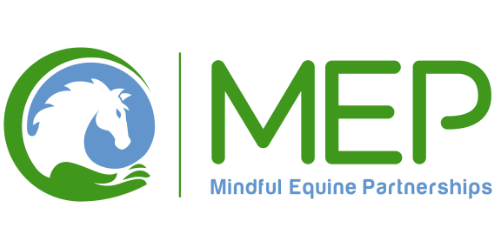Sensitisation and habituation are examples of non associative learning. Non-associative learning refers to a change in a behavioural response to a stimulus after repeated or continuous exposure to that stimulus.
Habituation
Habituation occurs when horses get used to a stimulant through the process of repeated exposure and stops reacting in a fearful way. Habituation occurs without obvious reinforcement, it sometimes happens without our knowledge or direction.
For example – A rider continues to kick the horse after he has walked. The horse becomes habituated to the kicking and ignores it.
Another example – A horse moves to a new field that has a railway line close by. The horse fears the sound of the train passing but over time he becomes used to it and is no longer fearful.
For habituation to become successful the stimulus must never cause harm or the fear will be reinforced. It is therefore critical that when habituation is used the equine should never be harmed.

In this image the pony is free to explore the plastic bag at liberty.
Flooding
Do not confuse habituation with learned helplessness, where a horse is exposed to a stimulus that he fears and cannot escape from. When this happens the horse becomes significantly less responsive, essentially shutting down behaviourally, no longer trying to escape or avoid, and enters a state of behavioural depression. This is sometimes referred to as flooding.
An example- The horse is afraid of a plastic bag. The owner ties the bag to the horse’s tail. The horse panics and tries to run away. He cant get away from the bag so eventually shuts down. Flooding is less effective and less ethical that habituation. Once used in humans to treat phobias, it is now considered an unethical treatment.
Many trainers including ‘natural’ horsemanship trainers claim to use destination (habituation) but use sensitisation instead. For example to train the horse not to respond to a tarpaulin the trainer might chase the horse around with the tarpaulin in a round pen until he no longer reacts (flooding).
Activity
Can you think of an occasion where you have witnessed a horse shutting down as a result of fear?
Could the horse have been exposed to the stimulus in a different way so that he becomes habituated?
Do you feel flooding the horse is an ethical way of training?
This blog post is an extract taken from the how horses learn course. For more information on the course or to enrol click below

